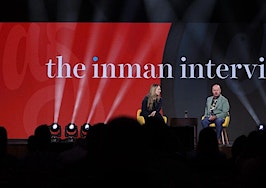At this moment in time, the fate of the real estate industry rests in the hands of a relatively new crop of real estate wonderkids.
Eric Wu, co-founder of OpenDoor, may be the boldest innovator. At Zillow, founder and CEO Rich Barton sports the hottest consumer brand. Compass co-founder Robert Reffkin is moving the fastest. Meanwhile, Redfin CEO Glenn Kelman deploys the best technology and Realogy CEO Ryan Schneider boasts the most agents.
Add RE/MAX CEO Adam Contos and Keller Williams President Josh Team to the mix and you have a new boys club running the real estate industry.
All are smart, and each are scrambling to change how business gets done. It’s not clear who will survive and whether this bunch are the final winners in a fiercely competitive race for real estate dominance in an age of disruption. But for now, they bear a real responsibility as part of a new real estate power tribe looked to for leadership, opportunity, predictions, ideas and partnerships.
The sprinter

Compass CEO Robert Reffkin | Courtesy: Kyle Espeleta
Next month, Robert Reffkin will fly to California to attend an exclusive gathering of fellow tech company founders who have been gassed up by Japanese venture capitalist Masayoshi Son. Dozens of executives from companies like WeWorks, Uber and DoorDash will hobnob in a secret Los Angeles location, learning how to be collaborative members of the $100 billion Vision Fund — an insider club of the new tech elites.
Reffkin’s other life — running a super-sized brick-and-mortar real estate brokerage — is less glamorous, contending with the hairballs of helping people buy and sell real estate in places like Roscoe Village, Illinois. Leading the fastest growing real estate company in the country is like jumping on a mini trampoline while taking a cold shower with a flock of blathering parrots.
He is known for treating his agents with respect because along with his money-raising success, they are the oil that keeps the Compass engine going. He is moving faster than anyone else in the brokerage industry, taking long strides to knock out the competition. He is an accomplished marathon runner, but a sprinter in the business world.
With a pedigree education and stellar career, including a stint in the White House, Reffkin is strong on vision and charisma and rarely leaves a dust-up with too much soot on his navy blue sports jacket.
But not everything is hunky-dory in the Reffkin universe. Hanging over his head is a contentious 68-page lawsuit filed by Realogy that, among other claims, alleges Reffkin personally proposed an illegal price-fixing scheme.
He has also struggled to get his management team in order. The Compass executive suite is always turning over, with incidents of semi-public infighting fairly common.
Reffkin’s strength is banking enough money (nearly $1.6 billion raised to date) to cover up mistakes and forge ahead with his growth plans, undeterred by agent uproars, lawsuits, industry controversy and market change. Raising that much money is not a trivial accomplishment.
Compass is his first start-up. The exit is clear, a public offering, giving many people a payday and everyone else a detailed look at the company’s financials for the first time. Is Reffkin up to the challenge? We may know soon, as Son is pushing his companies to get their IPO house in order so he can realize gains from his big investments.
At every turn, Reffkin seems to relish what is ahead.
The fixer

Realogy CEO Ryan Schneider | Courtesy: Kyle Espeleta
Williams College has only 2,000 students on a sprawling 450-acre campus in rural Massachusetts with a student to faculty ratio of seven to one. Prestigious, but not an official Ivy League college, Williams has a graduation ritual in which a watch is dropped from the top of the college chapel. If the watch breaks, tradition holds that the class will be lucky.
In 1991, the year Realogy CEO Ryan Schneider graduated from Williams, the watch broke.
In the coming years, even months, Schneider will need all the luck he can muster to turn around the giant New Jersey-based real estate enterprise that is Realogy. Wall Street is dubious, and the stock collapsed this last year. His consumer brands are struggling in the internet age. His agents are being lavishly recruited by Compass, Keller Williams and eXp Realty. And shaking up the old ways at Realogy is no light task.
But the nerdy and straight-shooting pHd (Yale) is making lots of moves with many more expected. He stepped up and sued Compass, his legal team working for more than a year to level a defensive blow to his fiercest competitor.
He has also shaken up his executive suite and cut a deal with Amazon. While it was mostly panned as a weak affinity deal when announced last month, the word is that the ecommerce giant is delivering lots of valuable leads to Realogy and that the Amazon partnership may turn out to be more lucrative than the critics imagined.
Other big moves are in the works, like thrashing the overhead from NRT’s 16,300 offices and more announcements on iBuying, technology and the new data strategy.
With his own clock running (19 months in at the job), Schneider has said privately that the markets will give him two years. He has lots to work with: the highest margin business model (franchising), the most revenue, the largest global footprint and more agents than the population of Minneapolis St Paul (nearly 400,000).
There are two ways to look at this mighty beast: It will die under its own weight or transform into something great again.
The master

Zillow CEO Rich Barton | Courtesy: AJ Canaria
If this were a presidential political race where brains, connections and charisma mattered most, 50-year old Zillow cofounder Rich Barton would win. But there is another important trait of this life-long entrepreneur.
In the summer of 2014, online real estate giant Trulia’s CEO Peter Flint was planning a European vacation when he got a call from Barton about Zillow buying Trulia. Flint, an affable U.K. expat, suggested they talk when he got back from his vacation. Barton purportedly said, “We need to talk now,” otherwise Zillow would begin a hostile takeover bid for Trulia. Barton then purportedly read a letter over the phone to fellow Stanford graduate Flint that he planned to send to Trulia shareholders.
Soon after, Flint heard from his largest shareholder Caledonia Funds which owned 20 percent of Zillow and 27 percent of Trulia. Caledonia expected Flint to push through the sale. The squeeze play was on, engineered by Barton, and Flint sold his pride and joy soon after to the enemy.
Known publicly for his disarming and charming style, Barton is also ruthless, tactics he learned in his early days at Microsoft.
Earlier this year, Barton came back as CEO of Zillow. He never really went anywhere, as he and wingman Lloyd Frink are controlling shareholders. But he was tired of the languishing Zillow stock under former CEO Spencer Rascoff and was purportedly turned off by Rascoff’s personal branding campaign that seemed at times to take precedence over the fate of Zillow.
At first, Wall Street loved his return, with Zillow stock jumping to more than $50 a share in July after falling to less than $27 a share last November. But the Street seems less bullish after the company’s Q2 earning calls, where Barton boldly brandished early results from his new business model of iBuying and agent referral fees.
The stock has sunk back to around $34 a share.
Though the jury is out on the direction of the new Zillow, Barton is beginning to leverage his powerful consumer brand, one that dwarfs most other real estate companies nearly tenfold. But the new model has many unknowns and is fraught with market risk and massive overhead.
But with Barton, he always emotes the attitude, “just watch me.”
The inventor

Opendoor CEO Eric Wu | Courtesy: RealScout/Inman/Facebook Live
The electric light was not “invented” by Thomas Edison, despite what you may have been told as a kid. More than 20 other people could be better credited with the invention before Edison. But he was the one to make it commercially viable.
Opendoor co-founder Eric Wu should be credited as the inventor of the iBuying business model and he is now in the race of a lifetime to be the Thomas Edison of his creation. He has already created a company purportedly valued at $3.8 billion. But a hyper tech valuation is not an indicator of future success. He must now be the market leader in a segment of real estate that has suddenly become very crowded with other well-capitalized start ups. One of those, of course, being Zillow, which is eating into all of the markets where OpenDoor previously launched.
With a degree in economics from the University of Arizona, the soft spoken Wu accumulated more than a dozen investment properties as a student and was fascinated with achieving business efficiency. His obsession now is ripping out the inefficiencies in the home buying and selling process through technology and turning how it’s done upside down.
Wu has raised more than $4.3 billion in debt and equity since he launched the company six years ago. Investors love his steady and focused approach to building and running a business. One investor told me, “Eric is predictable in a good sort of way.”
Will that be enough to fend off the likes of Zillow? Barton says Wu’s success created an “existential threat” to the consumer-leading online portal.
Over a cocktail several years ago, I asked Wu if he would consider selling to Zillow if it wanted to get into iBuying. He deadpanned, “Maybe we will buy Zillow.” That sounds like Thomas Edison.
The tortoise

Redfin CEO Glenn Kelman | Courtesy: Inman
A dozen years ago this summer, Glenn Kelman went on 60 Minutes (after feeding CBS the story) and skewered the real estate industry for price-fixing, commission gouging and other nefarious acts.
During production, the 60 Minutes crew filmed at Inman Connect in New York, capturing a nasty debate between cantankerous Realtor.com executive Alan Dalton and Kelman.
It was like the sound of your garbage disposal when cherry pits rattle around the bottom.
This was a low point for disrupters and legacy companies. A master at FUD (fear, uncertainty and doubt), Dalton worked hard to bodyslam Kelman, who fought back fiercely. Dalton won the real estate crowd with his bluster that day, but Kelman won the marathon.
Dalton has slipped off the radar while Kelman has not only grown up but has built what is shaping up to be the most complete and most productive brokerage company in the industry. And pay attention: It’s the fourth largest real estate broker owner in the country.
More humble and more self-deprecating today, Kelman’s business success is mixed with a keen understanding and outspokenness on tough issues like race in real estate, affordable housing and practical ideas about putting the consumer first.
He is also building the most complete technology offering of anyone in the industry. He likes to build, experiment, test and deploy — the key attributes of a true technology leader. Careful, methodical, responsive and focused, that is Kelman.
If you want to understand Glenn Kelman, read the Aesop Fable The Hare and the Tortoise. It begins:
“A Hare was making fun of the Tortoise one day for being so slow.
‘Do you ever get anywhere?’ he asked with a mocking laugh.
‘Yes,’ replied the Tortoise, ‘and I get there sooner than you think. I’ll run you a race and prove it.’”













